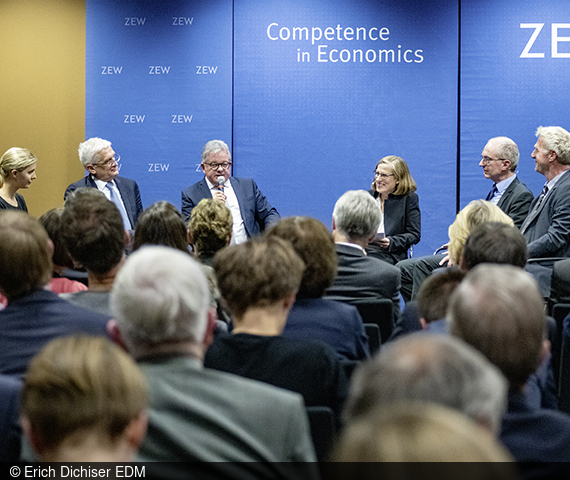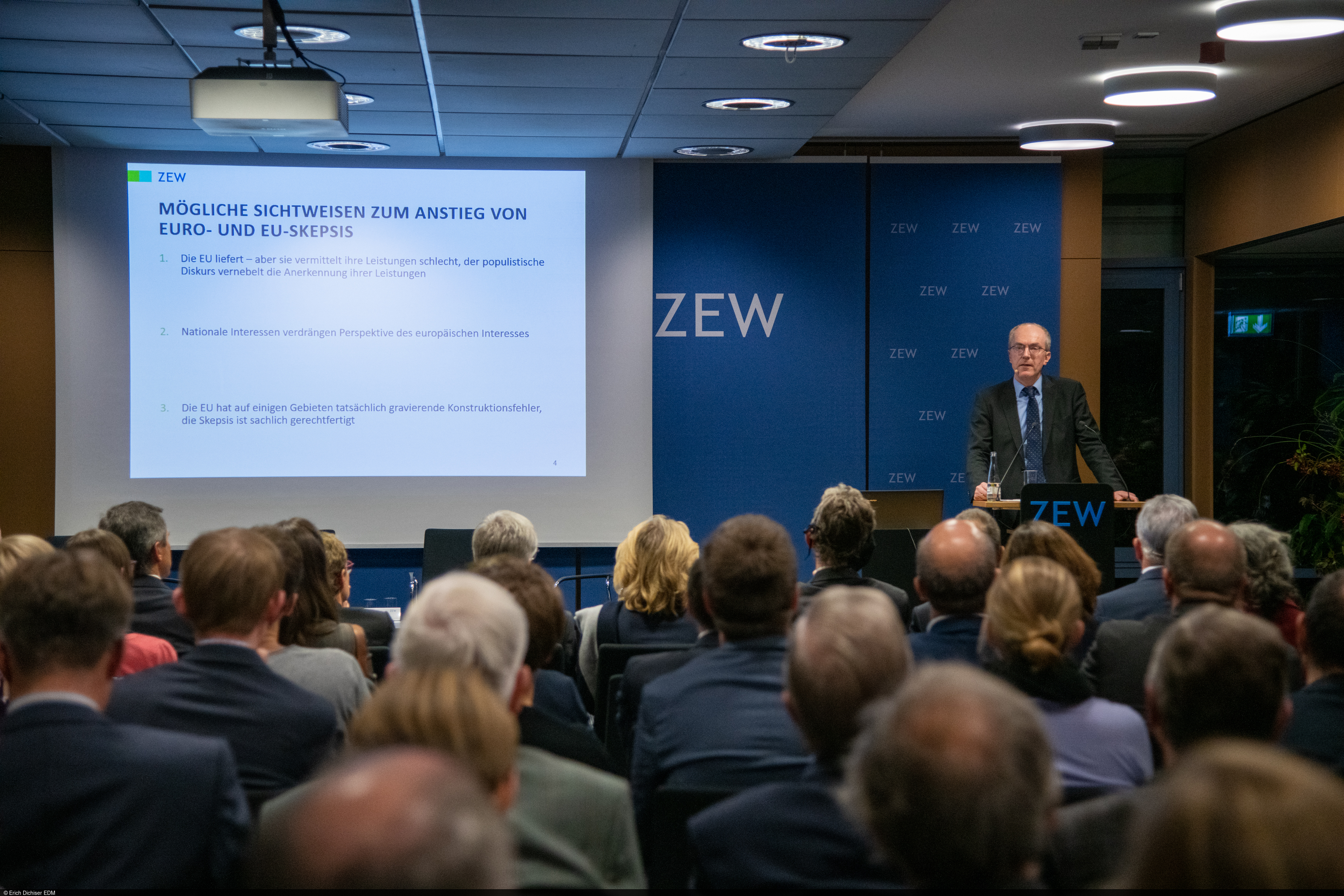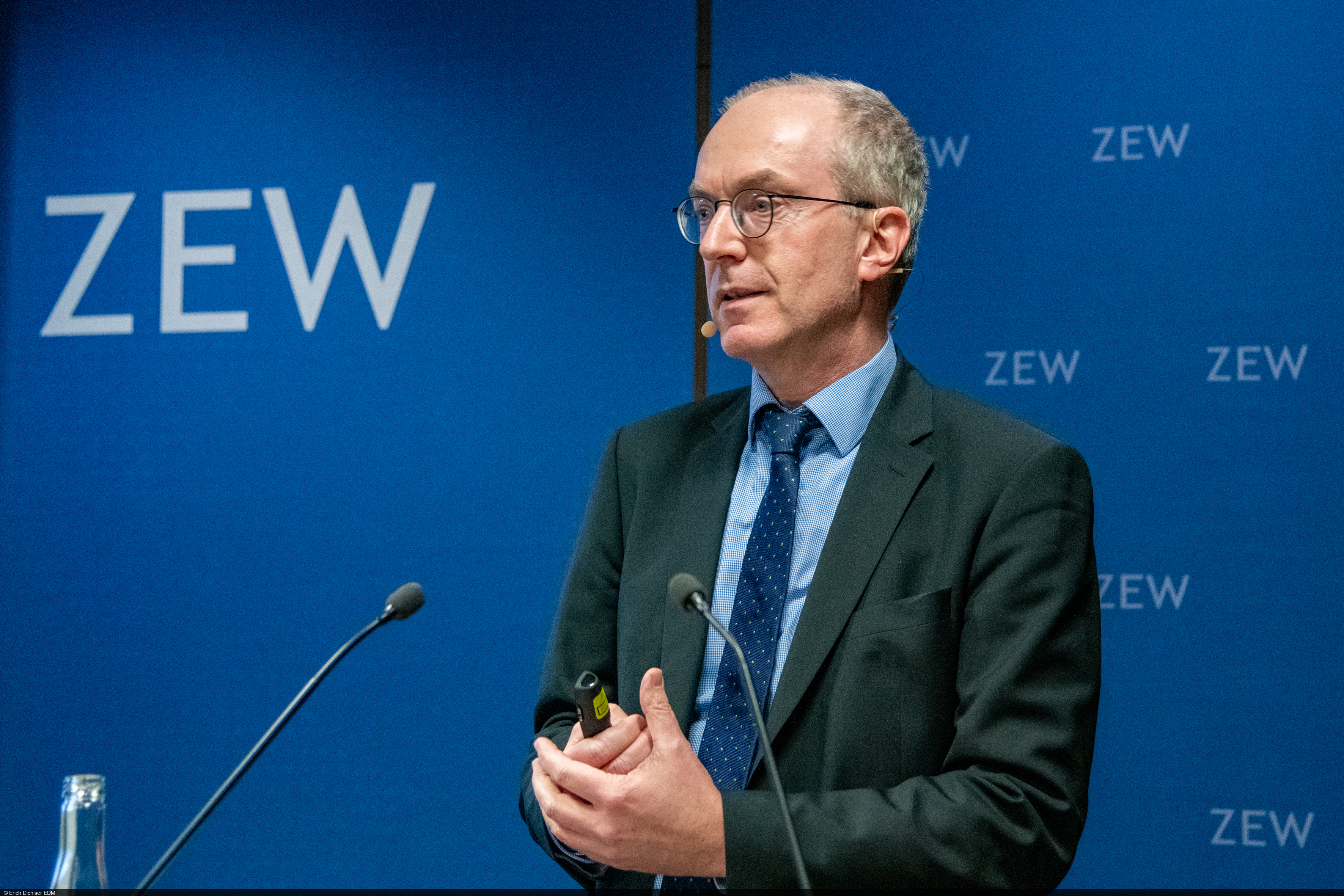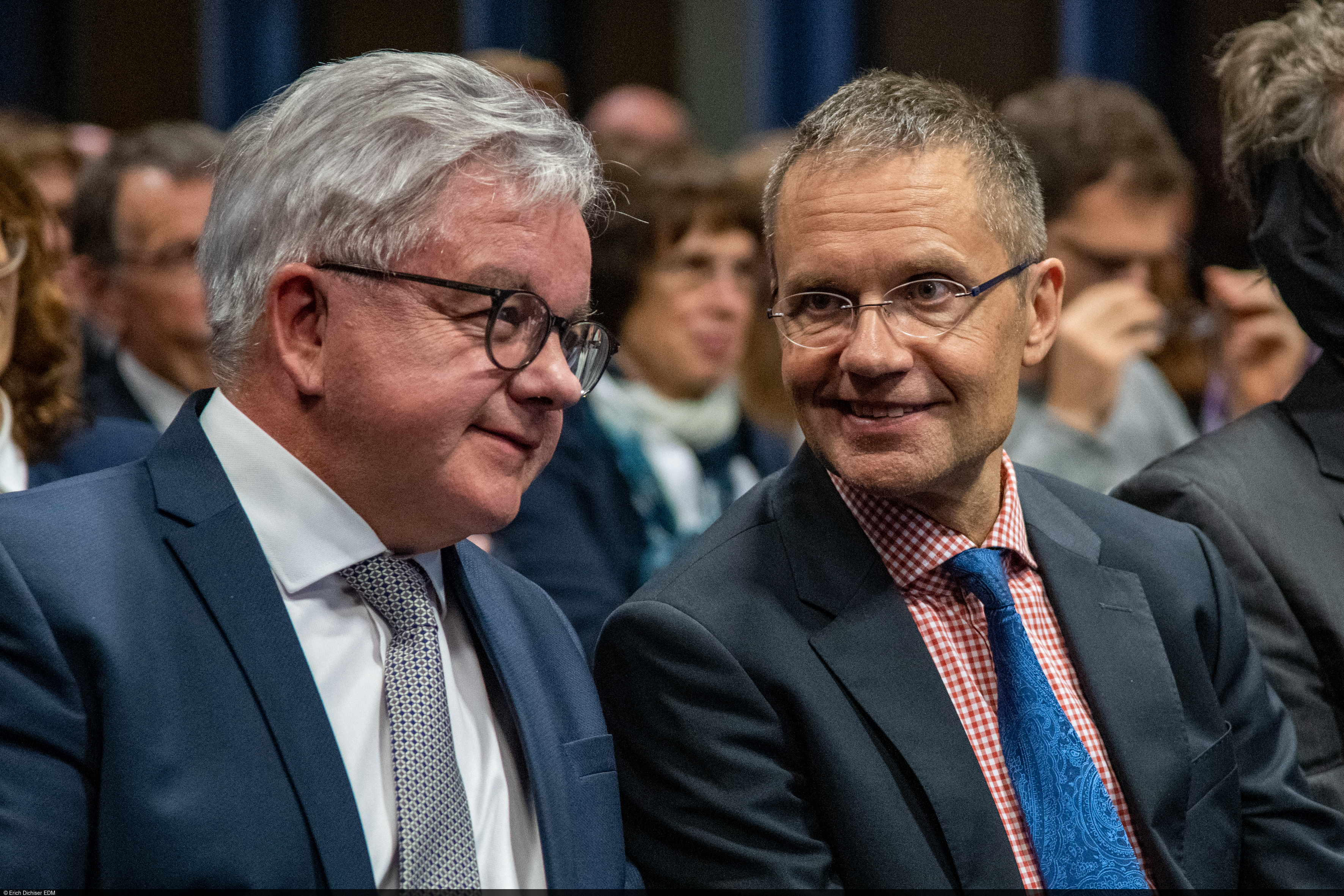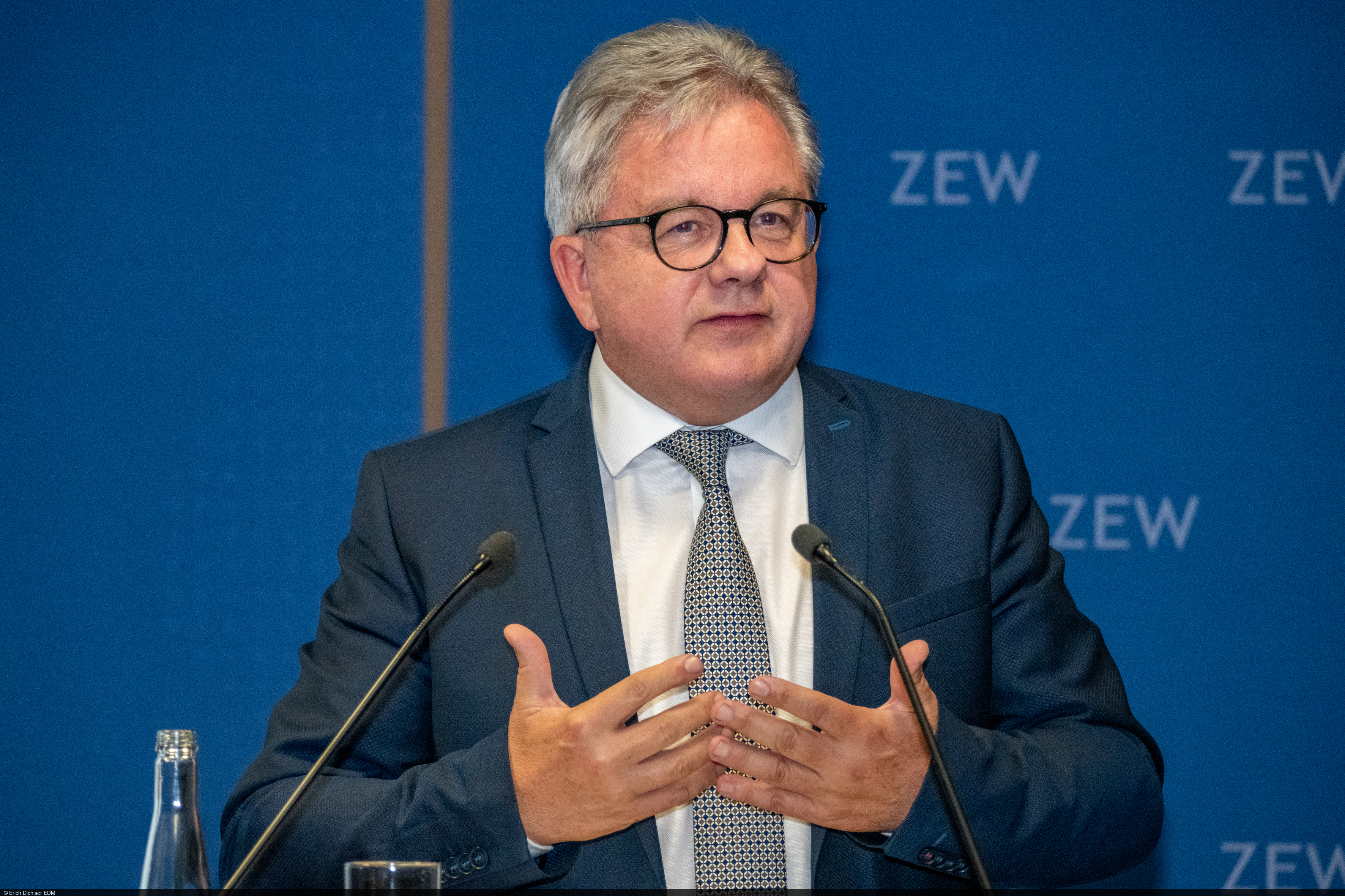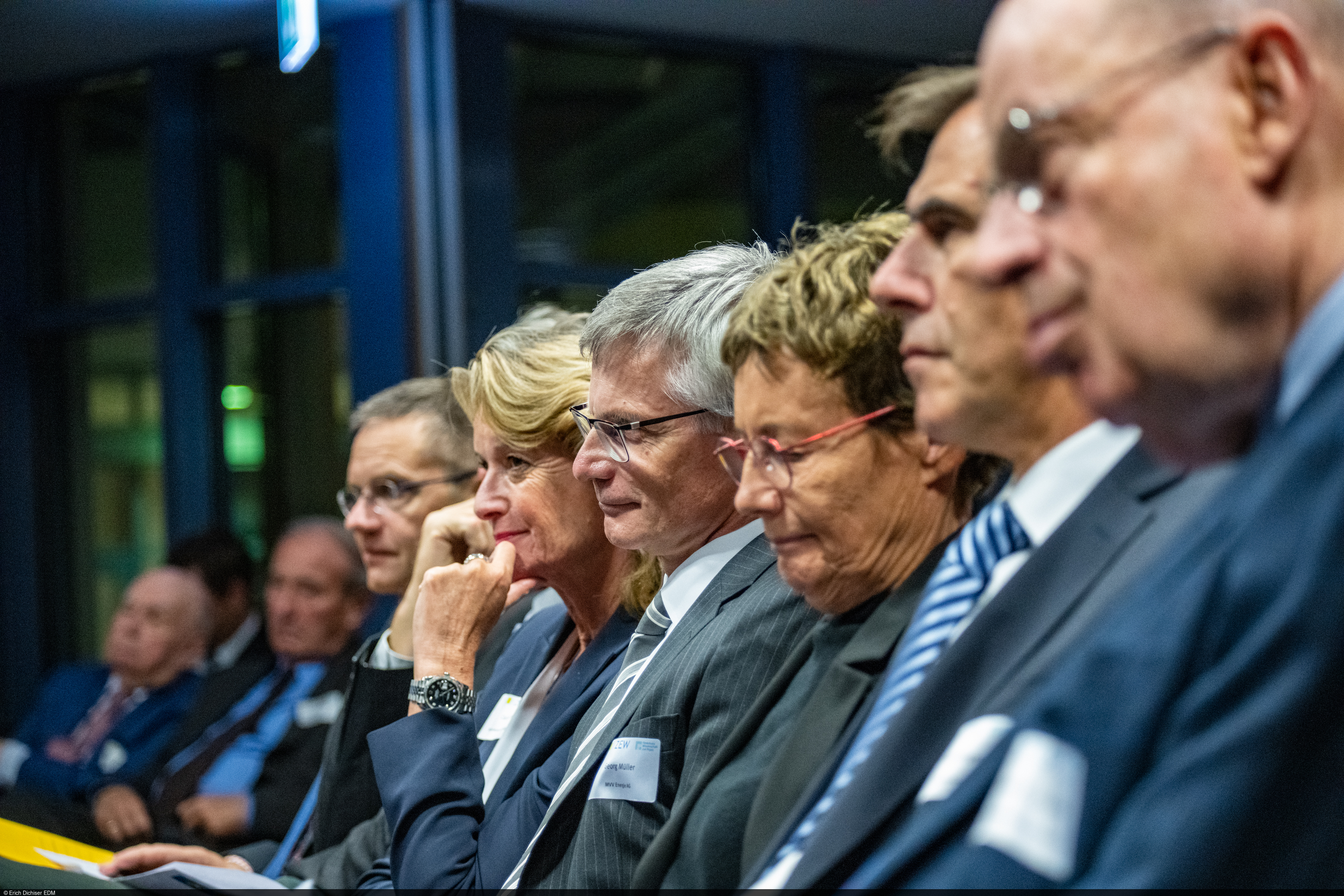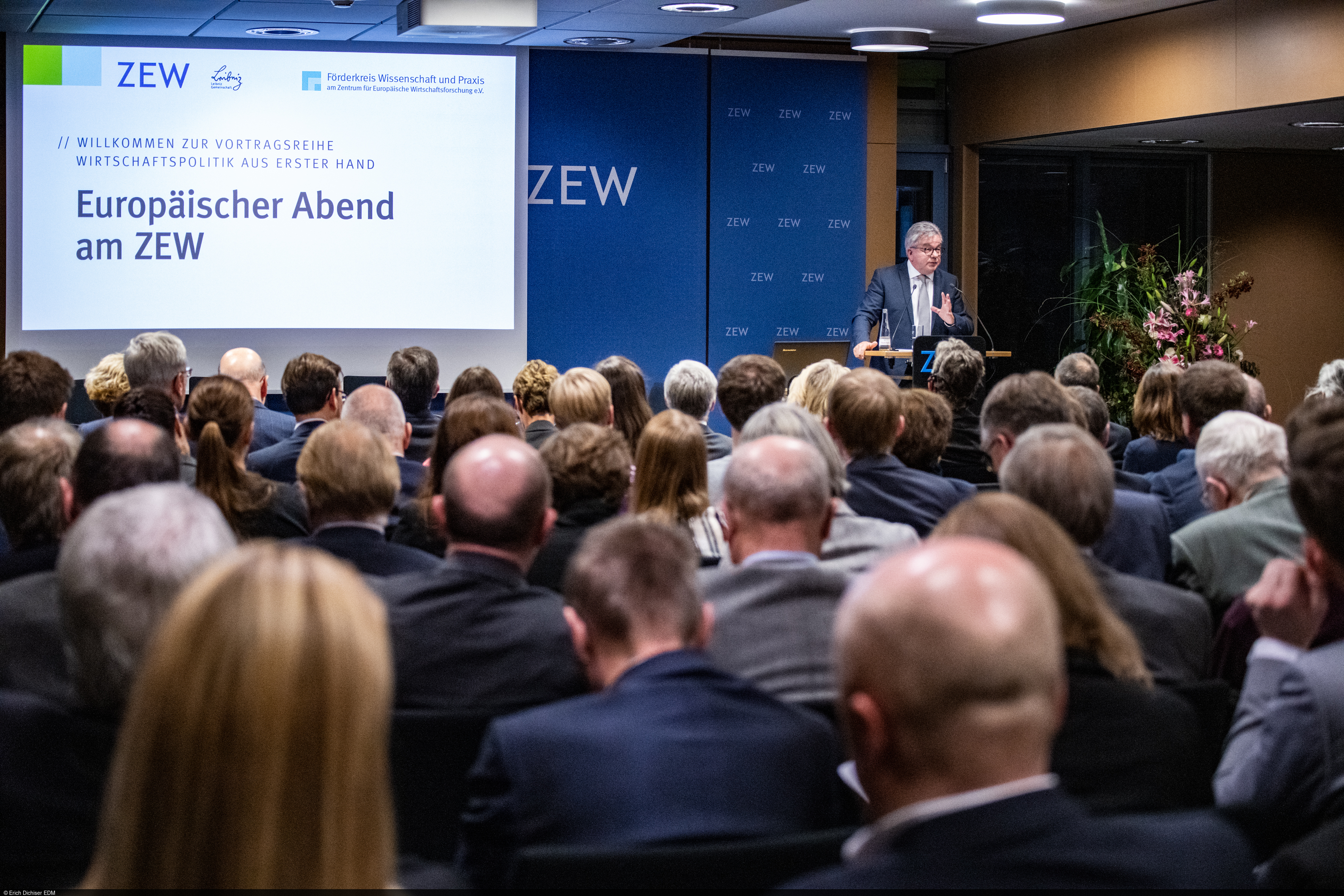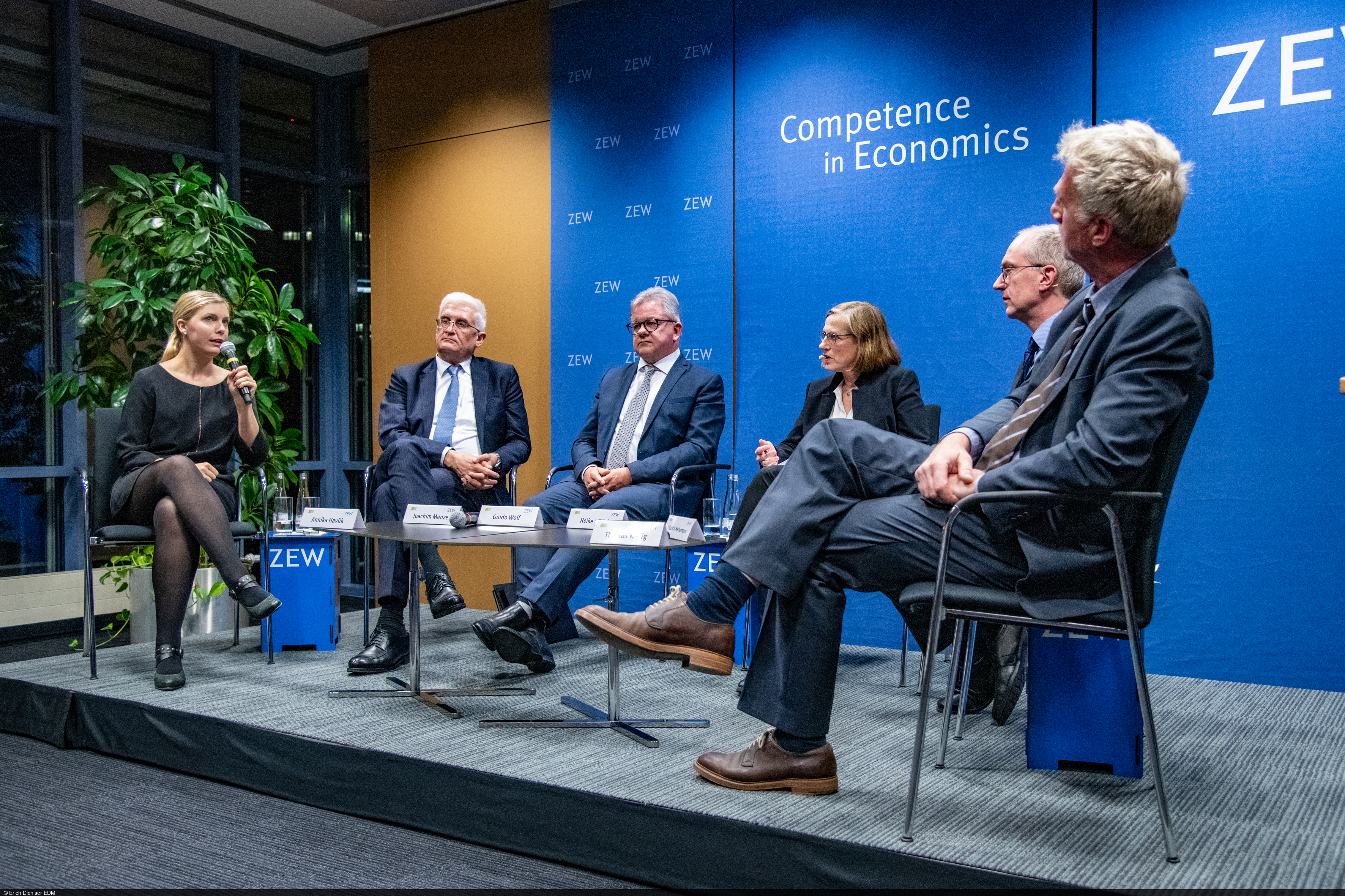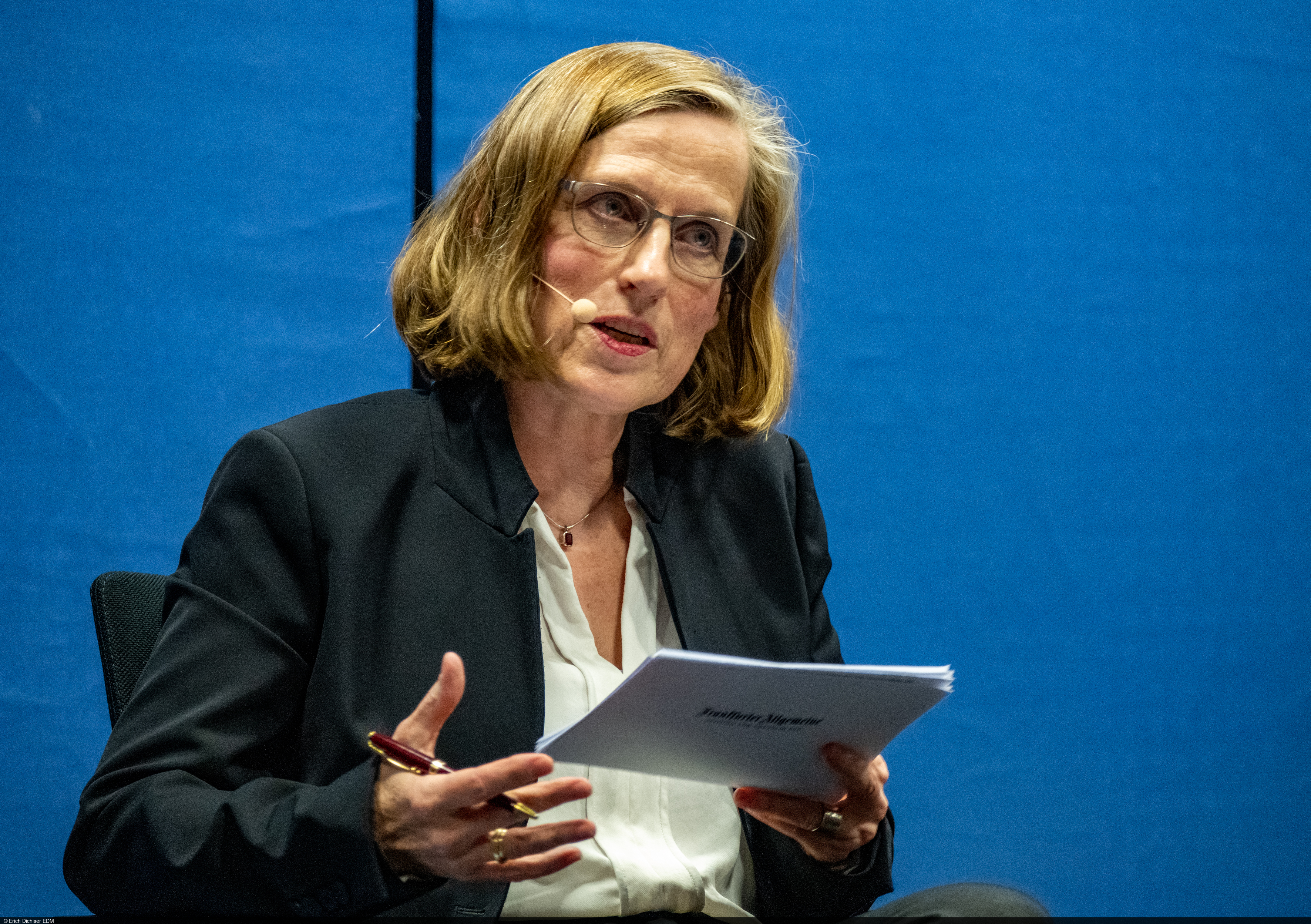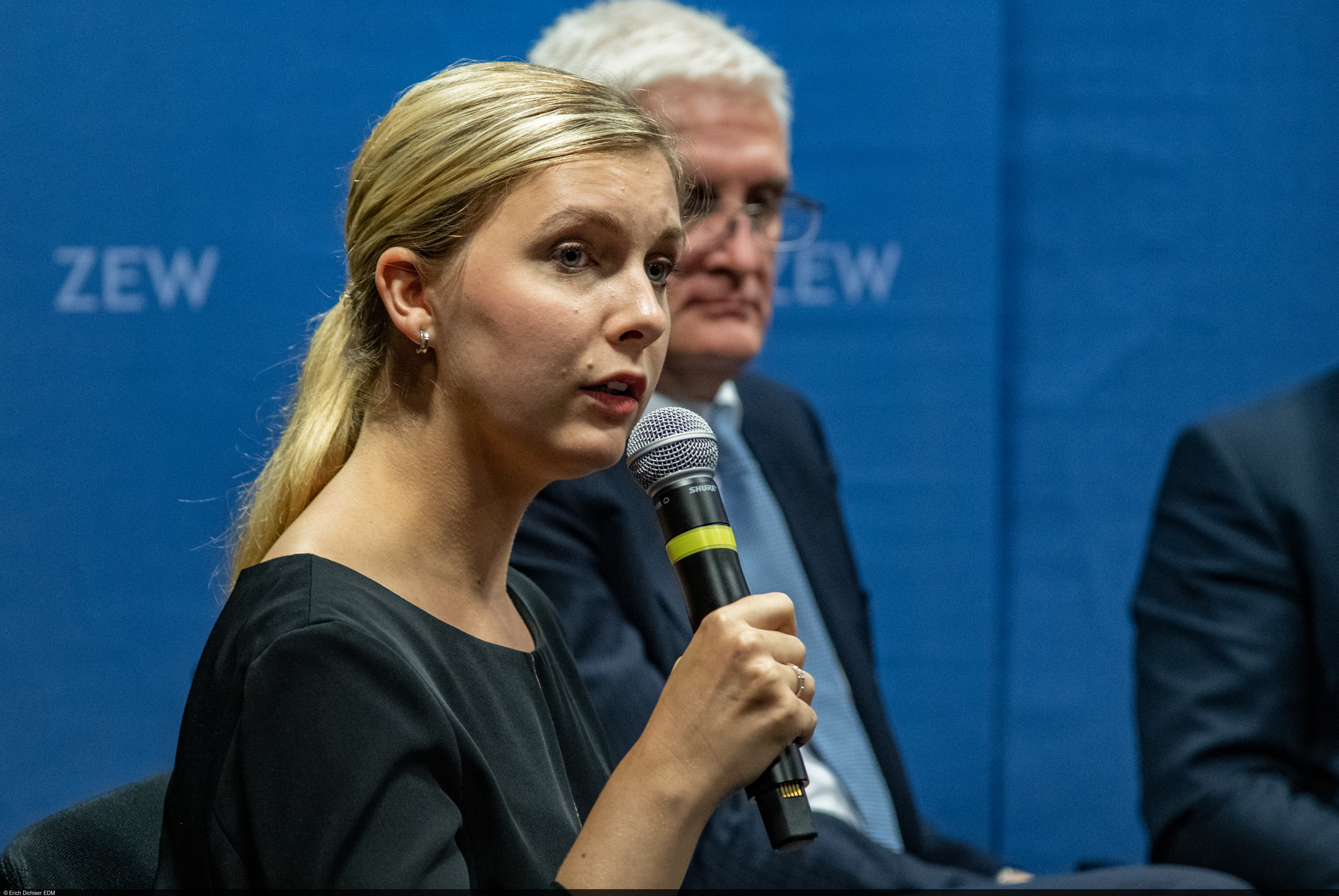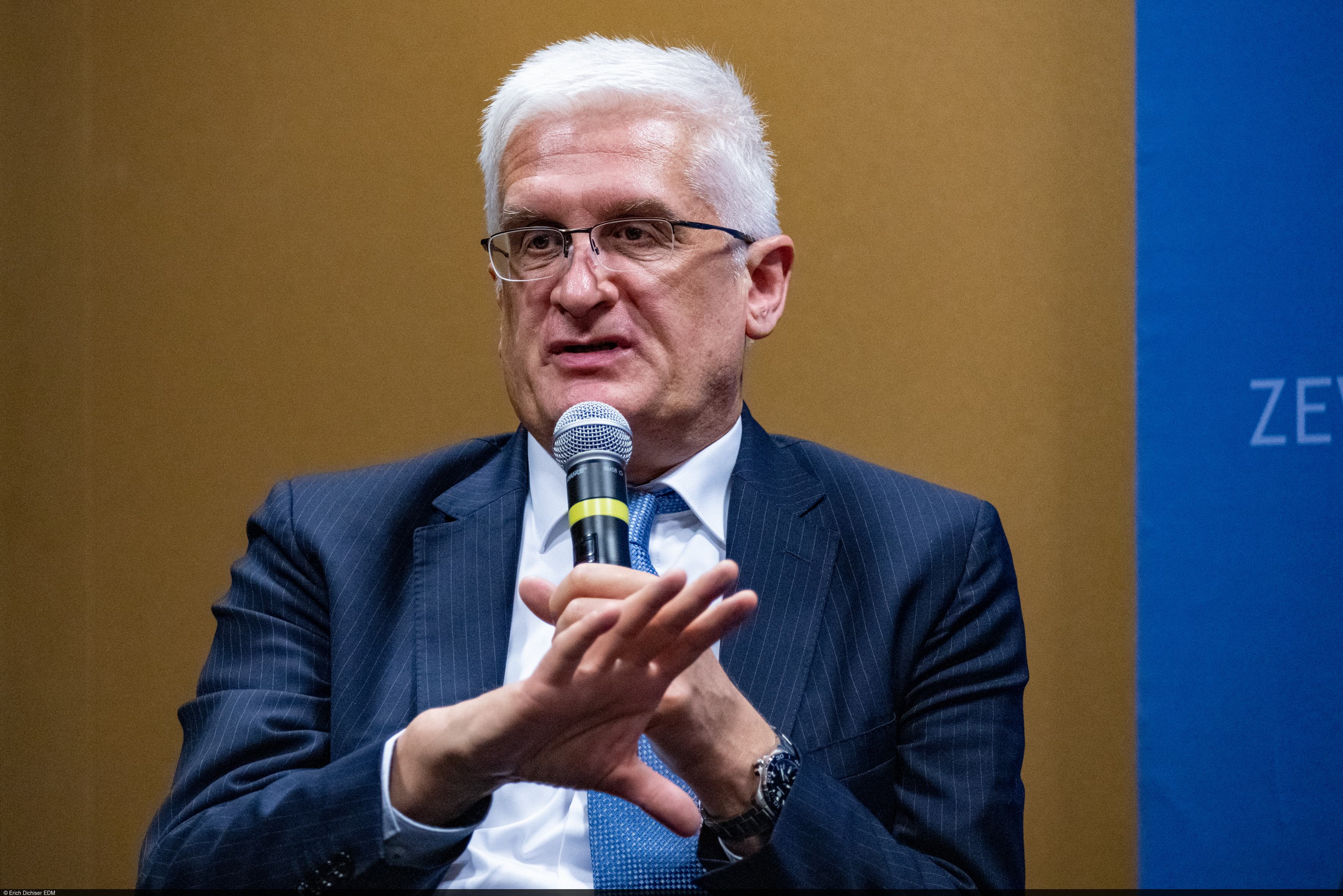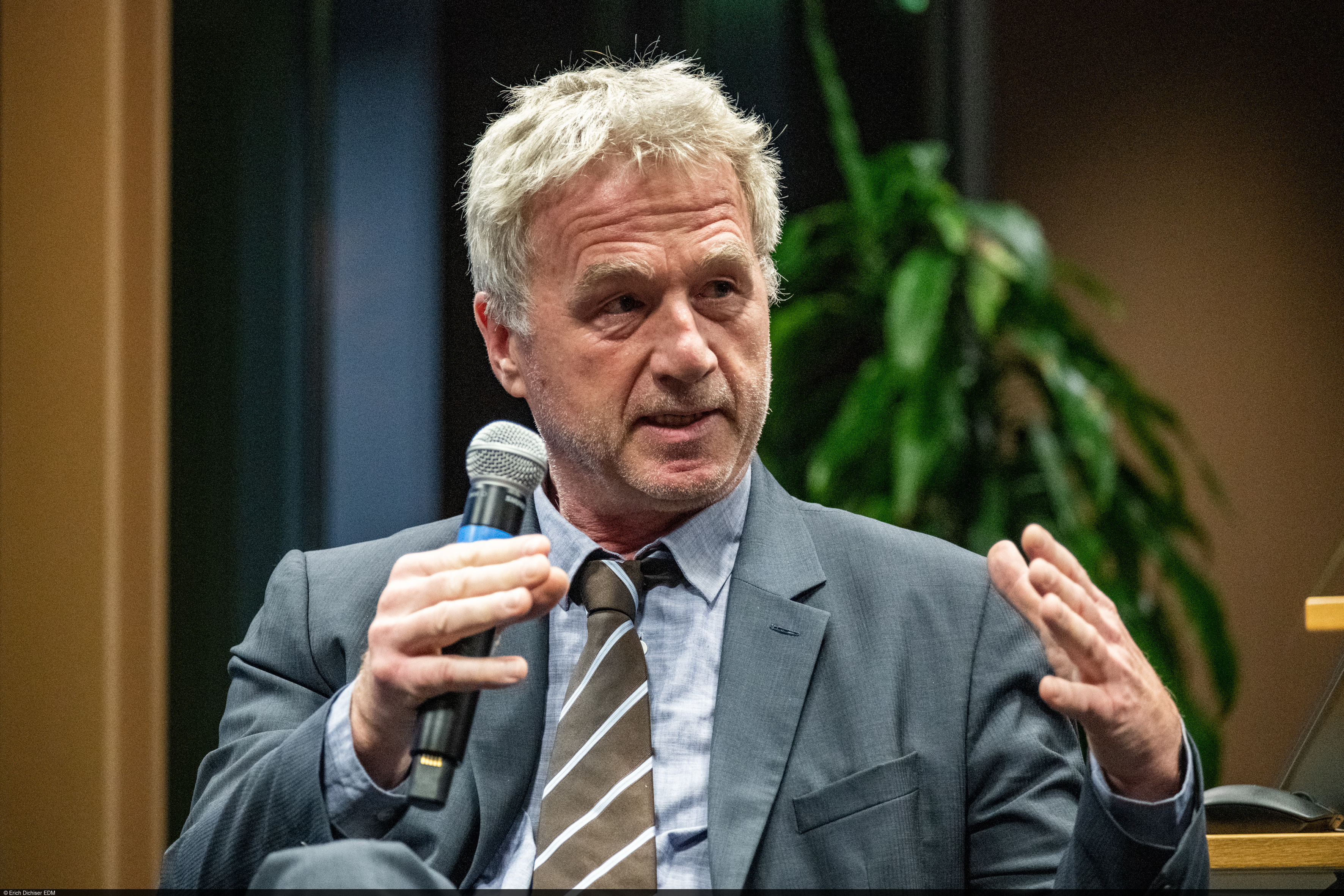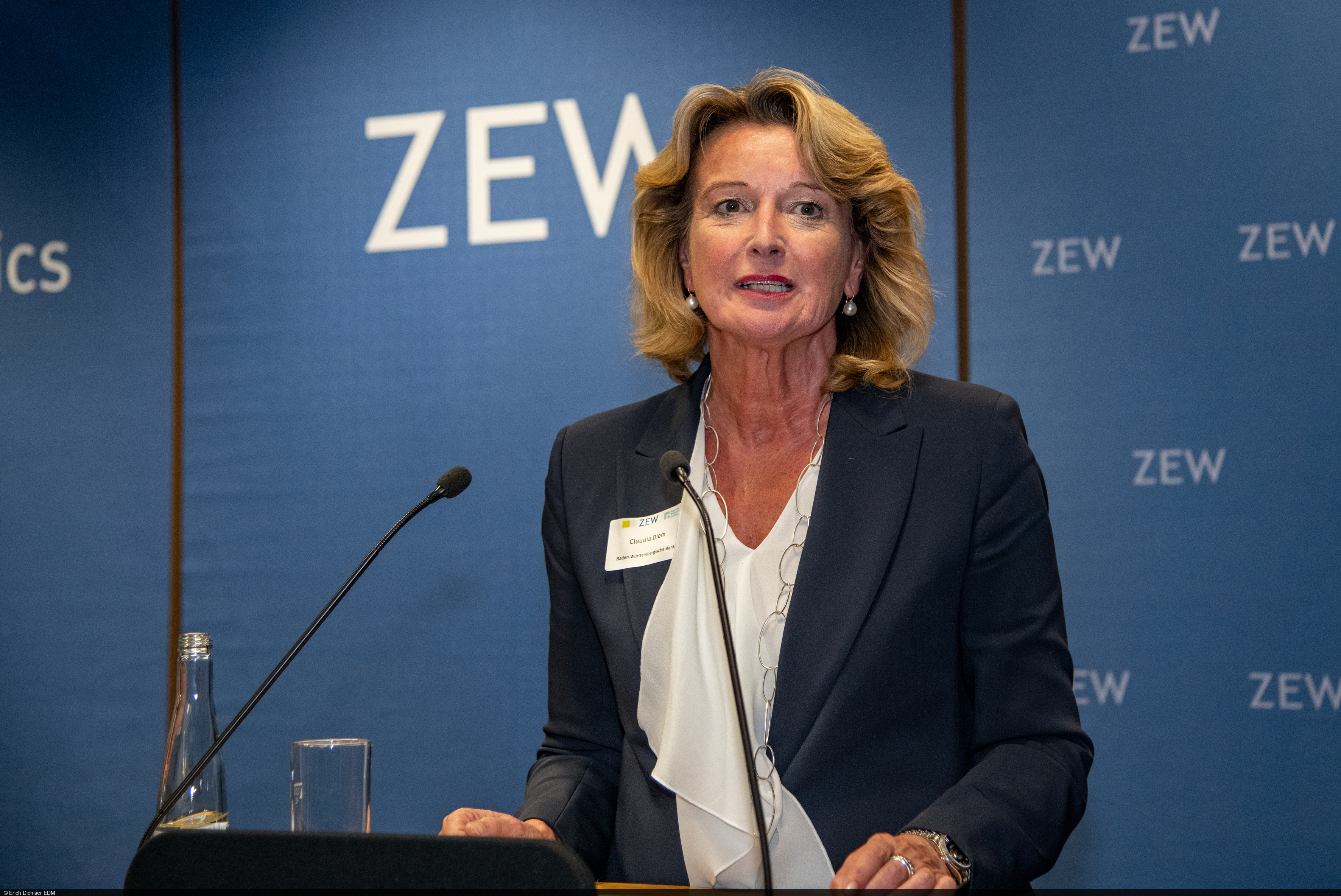The Tasks Are on the Table
European IntegrationEuropean Evening at ZEW Casts Glance at the Future of the EU
The European Union is facing major upheavals: the political agenda is defined by topics like climate protection, digitalisation and migration. At the same time, EU-sceptic parties are on the rise, and the UK’s imminent exit from the European Union threatens to massively impact the economy. In this context, where is Europe headed in the future, and which topics should the new European Commission prioritise along the way? These were the key questions discussed from a variety of angles at the first European Evening of the First-Hand Information on Economic Policy event series, which took place at ZEW Mannheim on Wednesday, 9 October 2019.
In front of an audience of approximately 110 guests from the worlds of business, science, politics and society, ZEW economists, experts on European policy and Guido Wolf, Minister of Justice and European Affairs of Baden-Württemberg, discussed possible scenarios for the future of Europe. “In 2019, we are celebrating 20 years of the euro – yet no one really celebrates.” This was the opening line to the kick-off speech by <link en team fhe _blank>Professor Friedrich Heinemann, head of the ZEW Research Department “Corporate Taxation and Public Finance”. Rather than celebrating the euro’s 20th anniversary, the focus had instead been on ten years of crisis and the question of what went wrong. According to Heinemann, this illustrates how Europe is still facing difficulties where its key projects are concerned.
But why is it that EU- and euro-sceptic voices are becoming ever louder? “We cannot just settle for the explanation that we merely need to do a better job of advertising the EU’s advantages,” Heinemann said. He also harbours doubts about demands that national interests be put aside more often for the benefit of European interests. As a sole measure, this would most likely not have the desired effect. “The EU’s only chance is to be a win-win project.” That is why all Member States should benefit equally from EU reforms.
Searching for added value in the European project
Hence Heinemann’s belief that defining the Multiannual Financial Framework for the period 2021–2027 will be one of the major tasks for the newly elected European Commission. “As it stands, about one third of the EU’s budget is spent on agricultural policy. For every euro spent on migration policy, there are one hundred euros for agricultural policy. This makes it flagrantly obvious that there is an imbalance,” Heinemann said.
He then went on to suggest that the concept of a European added value could be the starting point for readjusting the budget. According to him, it is not sufficient to show that a given EU programme brings a certain benefit. Rather, that benefit needs to be greater compared with the benefit generated by a corresponding national programme. “That’s when it is justified to tackle the problem in question politically and conjointly on a European level.” On this basis, Heinemann and his colleagues conducted a study commissioned by the Bertelsmann Stiftung to investigate in which areas EU policies truly create added value. The study found that issues relating to asylum and defence clearly benefit from common European policies, as do development aid and corporate taxation. The same cannot be said of agricultural policy, however. The search for a European added value was the economist’s main take-away message to the guests of the European Evening at ZEW.
People’s trust in politics is at stake
Straight afterwards, Guido Wolf offered insights into the current political situation in Brussels. “As the next German President of the European Commission, Ursula von der Leyen already submitted a highly ambitious programme for the five years to come,” the Baden-Württemberg State Minister commented. The fact that the European elections were premised on the individual parties’ lead nominees, who were then unceremoniously done away with and replaced with new candidates, as Wolf put it, was heavily criticised. “This move came at a high cost in terms of credibility, something that must not be repeated.” Wolf furthermore called for a swift settlement of the personnel debates surrounding the new members of the von der Leyen Commission. “Expectations among the public are high – and rightly so – that the Commission get down to business. The tasks are on the table; it is now time to find European solutions and gain people’s trust.”
Regarding the reforms he would like the European Commission to undertake, Wolf referred to the vision for Europe put forward by Baden-Württemberg state government in 2018, of which he said that much of its content was already part of the new Commission’s agenda. In his speech at ZEW, he demanded more Europe, particularly with respect to global issues which were best tackled in cross-border alliances, not unilateral moves. To illustrate, he named the diplomatic arena, defence, the fight against terrorism and organised crime, but also climate protection, digitalisation and the Single Market.
Taking the less privileged on board
Following the two speeches, Heike Göbel, editor for economic policy at the supra-regional daily newspaper Frankfurter Allgemeine Zeitung, hosted a thematically broad panel discussion. Alongside Guido Wolf and Friedrich Heinemann, three other experts on Europe offered their insights and opinions. <link en team ahv _blank>Annika Havlik, economist in the ZEW Research Department “Corporate Taxation and Public Finance”, expressed concern about the rise of populist tendencies. According to Havlik, the problem is that all too often people from less privileged backgrounds are deprived of the opportunity to directly experience the EU’s benefits, for example because they lack the means to travel abroad. This is why she welcomed proposals such as the launch of European exchange programmes for pensioners or SME employees. “This is a way of taking on board those who do not have a clear picture of the EU’s advantages.”
According to Thomas König, professor of political science and European politics at the University of Mannheim, there is a decision to be made in the long run between two alternative options: either a European party system is to be introduced, or efforts to solve divisive topics on a European level are terminated and the EU returns to being a purely economic project centred around the Single Market. “The economic primacy in the EU is increasingly replaced with a political primacy,” König said. “This raises the crucial question of whether or not we want a common European party system.”
In Joachim Menze’s opinion, the EU is currently well prepared for its long-term development. As the head of the EU Commission’s Regional Office in Munich, he acknowledged the European Commission’s system of vice presidents and was full of praise for the designated new team: “Ursula von der Leyen has reserved strong positions for strong candidates whose focus is on joint projects more than on the strict division of responsibilities and administrative compartments.” Asked what Germany should do to boost European unity, Menze warned that Germany was at risk of inhibiting growth for the whole of Europe if it failed to develop, at a speedy pace, its digital infrastructure. Friedrich Heinemann added that in the future, Germany needed to pioneer reforms more strongly than it does at the moment: “The British have always been a driving force of reform in Europe. They did not shy away when it came to addressing weak spots such as misspending or red tape. Following Brexit, it will be up to Germany to become more reform-oriented.”
The lecture series First-Hand Information on Economic Policy is kindly supported by the ZEW Sponsors’ Association for Science and Practice.
